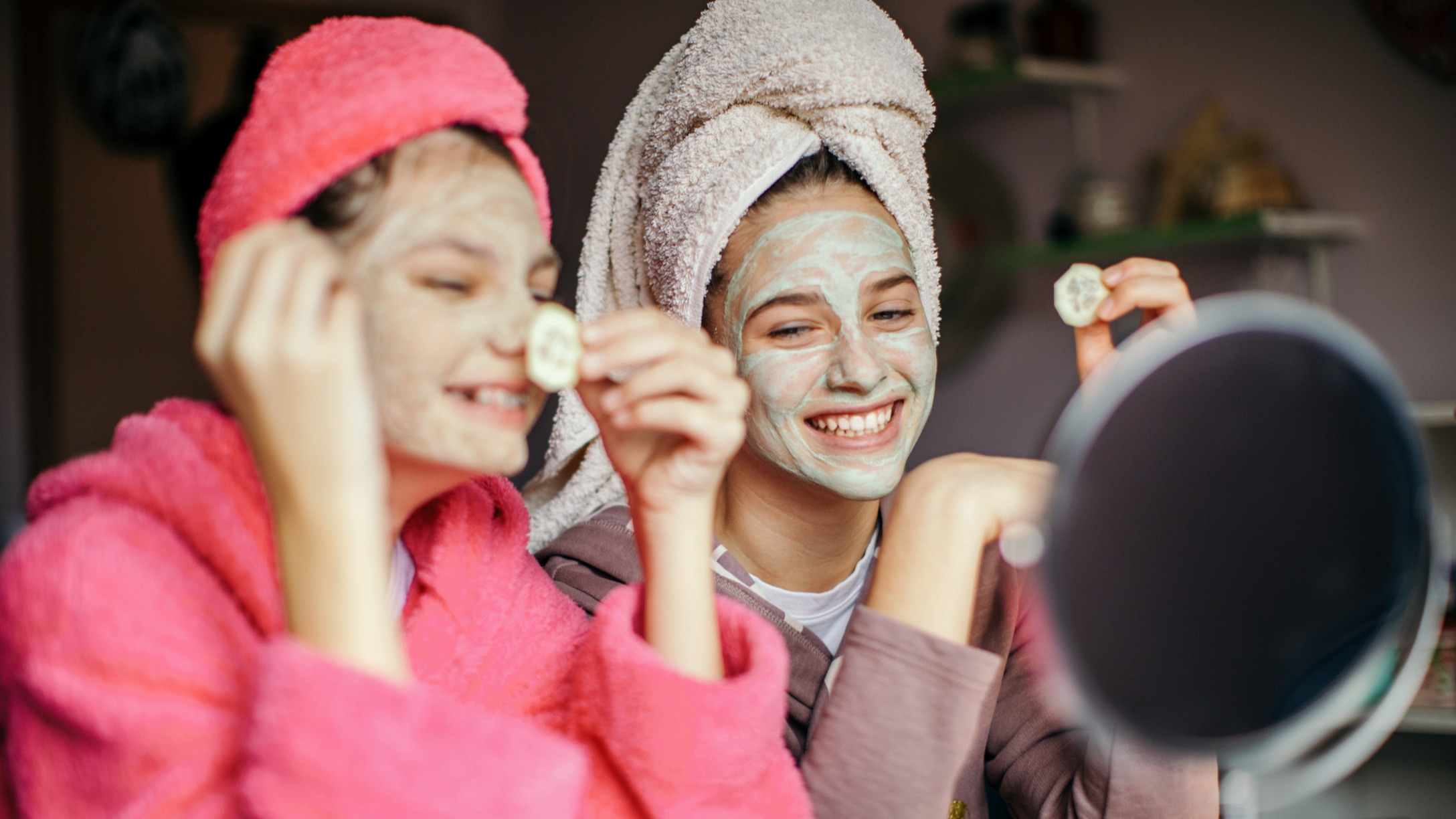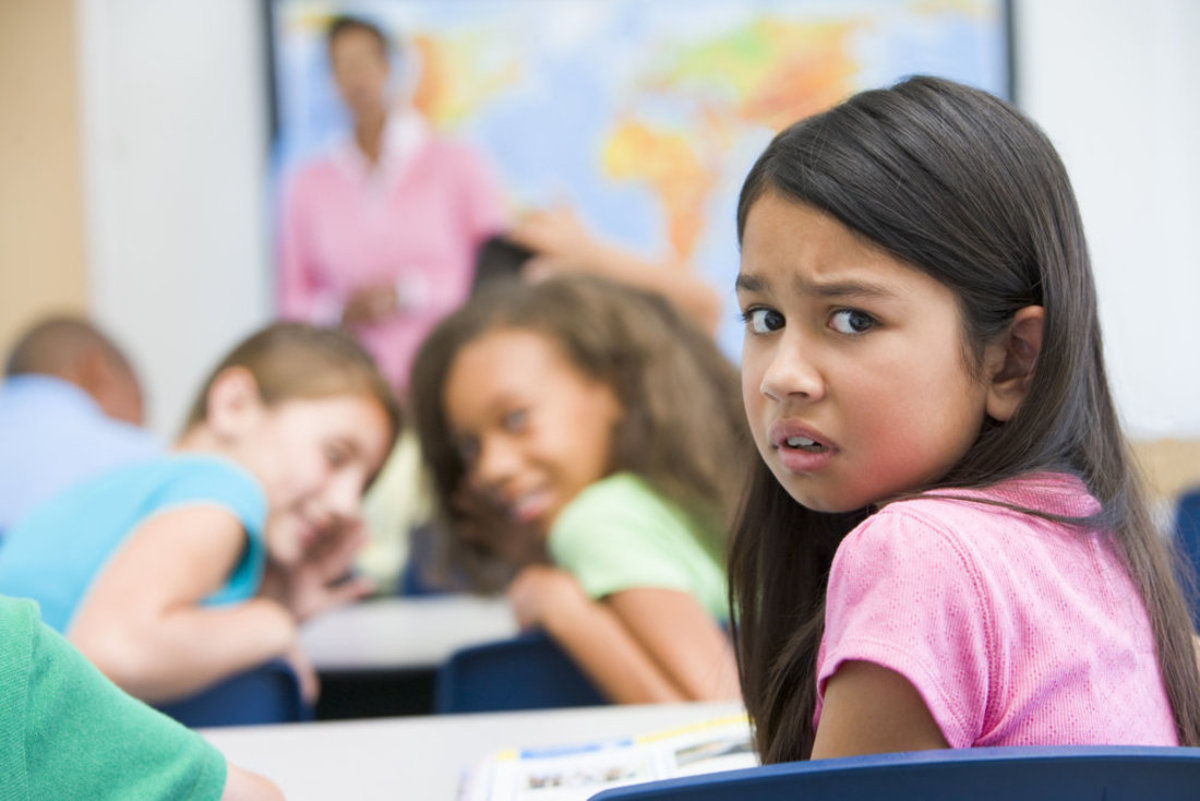
Social media is an integral part of children’s lives in this digital age. Platforms such as TikTok expose kids to rapidly changing trends at young ages. From viral products like the Stanley cup to beauty trends like multistep skin care routines, social media creates pressure to fit in and keep up with the latest fads.
As a parent, it’s important to recognize that these trends are influencing how kids treat each other. Kids have always felt pressured to wear the latest fashion trends or have the newest technology, but the Internet makes these trends even more pervasive.
Here’s what you need to know as a parent about these trends and ways to help your children if they’re getting bullied as a result.
More from CafeMom: Teen Clothing Trends: What the Kids These Days Are Wearing
How Trends Can Be Dangerous to Children
Children are at risk of bullying because of the pressure to keep up with what’s trending. Discussions about the harm of recent trends were sparked in January when an Ohio mom shared how her 9-year-old daughter was bullied at school by other girls because she had a tumbler from Walmart and not a legitimate Stanley cup, which costs as much as $50.
Although Stanley’s tumblers have existed since 2016, they experienced a 275% sales increase starting in 2022. The Stanley trend has since exploded online, and the search term “Kids Getting Stanley Cups for Christmas” resulted in 32.2 million total views in January 2024 on TikTok. A Stanley is no different from any other reusable bottle, but not having the right logo has led kids to be on the outs.
Another trend that may lead to bullying is the rise in skin care popularity. In one TikTok video, North West, the 9-year-old daughter of Kim Kardashian and Kanye West, showcased her skin care routine, including the popular brand Drunk Elephant.
Not only can these products be harmful to children’s skin, but the trends also are driving young girls to obsess over anti-aging. Kids as young as 9 years old have no reason to worry about having an expensive moisturizer, let alone wrinkles.
What Are the Impacts of Trends on Other Children?

Social media influencers often present idealized images of themselves and their lifestyle. Kids watching this content may start comparing themselves to unrealistic societal standards. They become aware of their physical and lifestyle differences as they interact with their friends, which may lead to feelings of superiority and inadequacy.
When trends become your child’s standards and they feel pressured to conform, it may lead to negative consequences, such as:
- Lower self-esteem: Constantly comparing oneself to others may result in lower self-esteem.
- Dangerous trends: Viral challenges such as the Tide Pod Challenge and Benadryl Challenge invite kids to ingest these products at unhealthy levels, which can lead to hospitalization.
- Bullying: About 40% of youth were bullied on school premises in 2023. Similar to the case of the 9-year-old girl who got teased because of a knockoff Stanley tumbler, children face the risk of bullying if they don’t follow trends.
More from CafeMom: 15 Dangerous & Downright Dumb TikTok Challenges Parents Should Know About
Signs of Bullying
Bullying has sneaky warning signs you should keep an eye on:
- Decreased self-esteem
- Lost or destroyed items, such as clothing, books, and electronics
- Unexplainable injuries
- Vanishing friends
- Avoidance of social situations
- Self-destructive behaviors such as self-harm or running away from home
How Can You Help Protect Your Kid From Bullying?

As a parent, you can help keep your child safe from bullying with these tips.
Establish a safe learning environment. Bullying is often a main reason why parents decide to homeschool their children. Although it’s not the only option, many parents believe their kids will be safer learning at home. Before making this decision, have conversations with your child’s teachers and principal and push for measures to be taken to prevent bullying at school.
Encourage honest conversations. Trust-building is the foundation of responsible social media use. Create an environment where your children feel safe discussing their online experiences and concerns. Let them know you’re listening to them.
Your child might ask you to buy them something you think is expensive or unnecessary. Even though you don’t need to buy them everything, you should ask them more about the situation before shooting them down. It’s likely there’s more to the story than just wanting something new.
Teach responsible social media usage. Set ground rules when it comes to using social media. You can ask your child to leave their smartphone at night with you so they won’t spend too much time scrolling through social media.
You should also consider delaying social media use until you think they’re old enough to cope with the risks. Although most platforms allow children to sign up at age 13, that’s usually too young for kids to handle the mental and emotional effects.
Hone your kid’s emotional and interpersonal skills. Encourage a space where everyone is free to talk about their feelings. Children who spend time in an emotion-rich language environment have higher emotional intelligence and are more likely to stand up for victims.
Explore new activities. Offer new learning opportunities to help your children feel capable and proud of themselves. Observe their interests and how you can help them explore something new in that area. For instance, if they love art, consider enrolling them in a painting class.
As you explore new growth avenues, remember to choose something that won’t be too challenging or easy. Encouraging learning fosters higher levels of self-esteem.
Stay informed. Know the trends prevalent on social media platforms. Knowing what your child is constantly exposed to is essential for proper supervision.
Keep your kids safe. Although you can’t control trends, you can protect your children from their potential risks. Help your kids help themselves by equipping them with love, care, and proper parental supervision.




